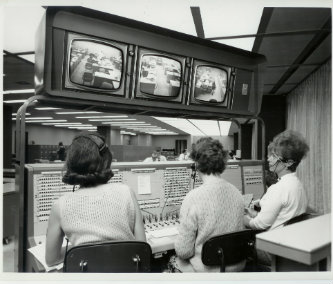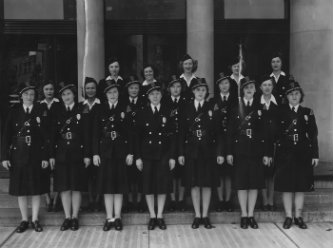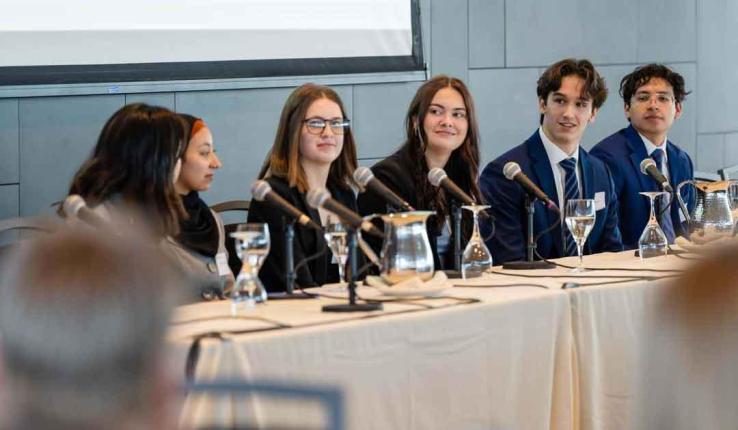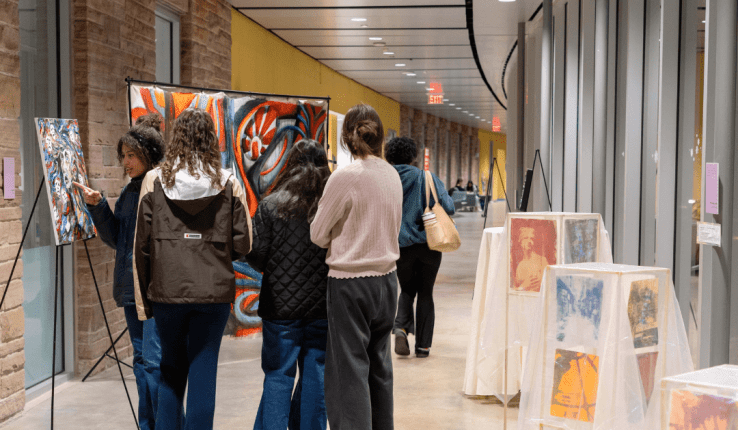Lehigh Joins in 'Women of Bethlehem Steel' Project
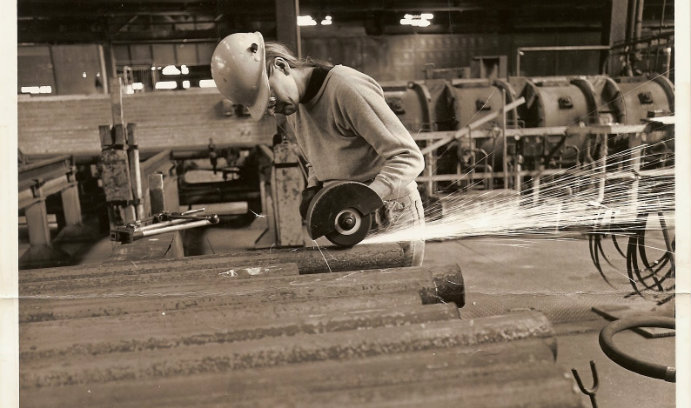
Iva Ferris, 66, can fix any electric motor you give to her.
Currently a paralegal, she credits that unique skillset to a job she had 40 years ago—at Bethlehem Steel, in the shadow of Lehigh University.
Ferris joined six other women on Bethlehem’s South Side in December to share their experiences, hardships included, working at the former steel plant in Bethlehem. The panel discussion capped phase one of the Women of Bethlehem Steel project—a collaboration between Lehigh’s South Side Initiative and Library and Technology Services and the Steelworkers Archives.
The project seeks to gather and share lesser-known oral histories of the women of Bethlehem Steel. Lehigh spearheaded the initiative to add 10 more stories (14 were initially gathered by the Steelworkers Archive) and made the collection more accessible by allowing users to search through interviews with keywords.
The archives are housed at Lehigh’s libraries and available online so that members of the community can continue to study, share and experience the stories for generations.
“The women interviewed are pioneers,” said Seth Moglen, Lehigh associate professor of English and former South Side Initiative co-director, who moderated the panel a few blocks from Lehigh at the former Bethlehem Steel property that is now Northampton Community College’s Fowler Family Center. “They proved that there was, in fact, no such thing as ‘men’s work’ and ‘women’s work’ and that women could perform as equals in every workplace in the United States once the barriers of discrimination had been overcome. Their stories are an inspiration to us all—and are a precious resource for our community.”
The 1974 U.S. Supreme Court consent decree allowed the first “barrier” to fall, as it required companies to abandon discriminatory hiring practices that excluded women from lucrative jobs. However, the real difficulties for women were only just beginning.
Ferris recalled receiving an apprenticeship in the electrical repair shop, only to go into the shop to find her toolbox overflowing with crude oil; her tools had been ruined by jealous men. She said she also faced harassment and discriminatory layoffs. Twice, she sued her employer.
Esther Lee, a former office worker and current president of the Bethlehem NAACP, said her status as a woman was only made more difficult by the color of her skin. While she was thankful for the job, she said she had no opportunity for growth.
“It allowed us to get work we would not have gotten otherwise and certainly the dollars mattered,” she said. “I enjoyed my work but there was no advancement there. I was a clerk. There were times when they wanted me to go into the community and say I was a secretary, but I wasn’t.”
Connie Fuller, a former office worker in St. Louis and sales department manager, spoke positively of her experience. The men in her office looked out for her, she said, and helped her raise her children as a divorcee. Every day two men came to pick her up for work, with one holding the baby and the other taking the diaper bag. They’d drop the children off before heading to work together, and every evening, reverse the steps.
Still, it wasn’t easy. Fuller said she was criticized by women she knew from school for seeking fulfillment beyond her role as a mother.
“There was a lot of anger and lack of support all the way around,” she said. “So in many ways Bethlehem Steel supported me better than many of the people I expected to support me.”
She also said that while the men took care of her, their view of themselves as “father figures” was often patronizing. Nonetheless, she said, she continued to pursue opportunities and pushed back when men in the office tried to give her only secretarial work.
“I had to fight and kick a little bit, but they didn’t kick back,” she said, “and they opened doors for me, so I will be forever grateful for that.”
Former ore handler and millwright apprentice Bess King started working at Bethlehem Steel in 1979 on the shop floor. She tested into the apprenticeship program where she’d make $8.50 an hour. The men in the shop told her she should be at home “barefoot and pregnant.” (She was pregnant at the time). “Well you’ve got half of it right,” she’d respond.
Iris Linares, former United Steelworkers of America union officer, said her third pregnancy had coincided with the first year that women were allowed to take a leave of absence for pregnancy.
“I was one of the first to be out for 12 weeks, which was great,” she said. “By the time I went back to work it was hard to leave (my baby),” she said, but she thanked the steelworkers union for getting the pregnancy leave put in the workers’ contract “because it really did help.”
In 1995, steelmaking ended in Bethlehem. Some 1,600 hourly and salaried jobs were lost. For women hired after the consent decree, layoffs began less than a decade after starting at Bethlehem Steel, in a community where male steelworkers often had 30 to 40 years on the job.
Judy Hoffert’s husband, who worked in the blast furnaces in Bethlehem, was among those who were given the opportunity to work for a company arm in Baltimore. But after six years, 11 months and three days in Baltimore, she said, Bethlehem Steel went bankrupt—just 10 days before her husband was eligible for his pension.
Today, the family lives off 20 percent of what her husband used to make, she said. They moved back to Bethlehem and worked to pick up the pieces and rebuild. She said life is far from what it should have been. “That’s what the steel company did for us,” she said.
Not only did Bethlehem Steel define life and employment for the women, their families and generations of South Side Bethlehem workers, for those in roles as pioneering female employees, the women also made an impact on Bethlehem Steel and other industries.
“These are the women who changed everything, who showed women could work in any workplace in America,” Moglen said. “But the challenges these women wrestled with are challenges women still face today.”
In one way or another, the women indicated in the panel discussion, Bethlehem Steel had left an irrevocable mark. Whether it was for the strength they gained by fighting through adversity, the skills they developed or the experience of being a part of it all, each woman expressed gratitude, despite the hardships, for what they gained from the experiences.
That is why, 40 years later, Ferris can still be seen using her own tools and working on her own cars—“thanks,” she said, “to Bethlehem Steel.”
Story by Madison Gouveia
Posted on:


